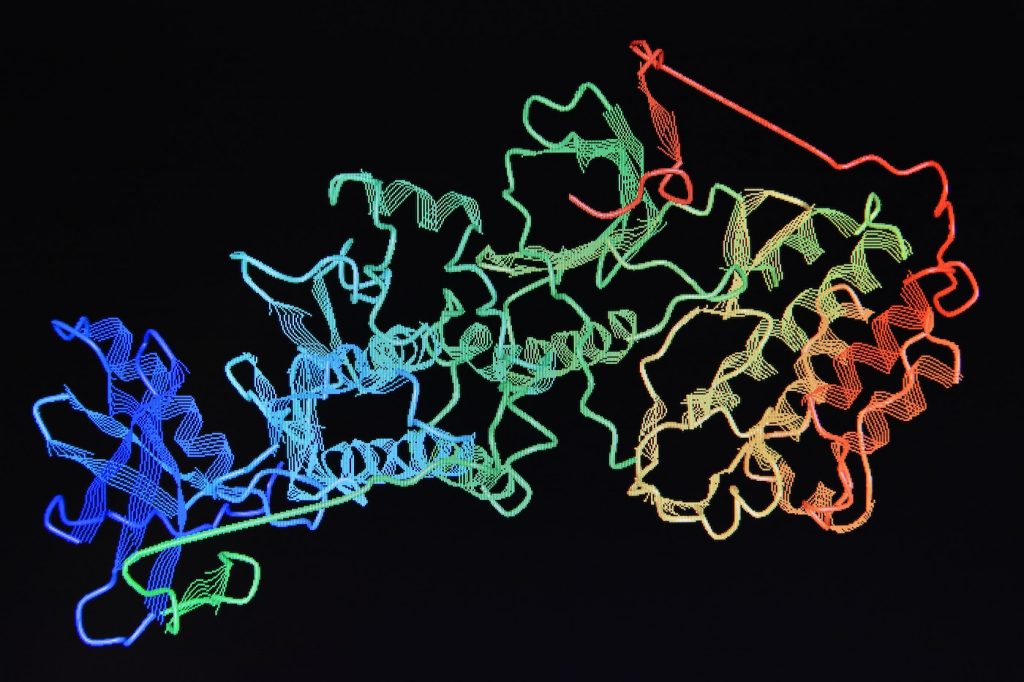Determining the structural, chemical and functional properties of proteins is of vital importance to an increasing range of biopharmaceutical and life science markets. This is conducted repeatedly throughout the research and development (R&D) process for initial characterization of a protein’s biochemical activity and functionality, alongside physical instability testing. A key parameter to monitor throughout this process is protein molecular weight.
Importance of Protein Molecular Weight
Proteins are formed of amino acid residues bound together by peptide bonds between the amino nitrogen (N) and the carboxyl group. Only 21 distinct amino acids exist, but they can bind together in such a variety of three-dimensional (3D) polypeptide chains that virtually limitless potential protein chain sequences exist. This results in millions of distinct, intricate potential protein structures. The diversity of protein structures is owed to subtle chemical variations which result from differences in the amino acids charge, functional group composition, size, shape, etc.
Provided the composition and sequence of amino acids in a linear chain are known, protein molecular weight can be accurately predicted based on the known molecular weights of the amino acids.
Proteins structure is chiefly defined by:
- Primary Structures: The underlying amino acid chain within the polypeptide.
- Secondary Structures: The main substructures that form from these bound amino acid chains.
- Tertiary Structures: Describes the formation of the final 3D structure comprised of secondary structures, like α-helical secondary phases which are held together by various mechanisms.
Protein molecular weight is a key parameter to confirm, as the primary structure is the most foundational level of protein structure. Developing a robust understanding of the unmodified protein molecular weight can assist in initial assessments of the biomolecule’s functionality. This could include:
- Binding and transportation of small molecular species
- Enzyme catalysis
- Gene regulation
- Immunological responses
- Metabolic regulation
Additionally, proteins are subject to a plethora of complicated chemical-mechanical changes in response to physical instability, which can lead to denaturation, the formation of aggregates, and the evolution of protein molecular weight.
Gel permeation chromatography (GPC) is the most widely used tool for interrogating protein molecular weight at many stages of novel pharmaceutical development and life science research. With advanced triple detection GPC (MALLS, Viscometry and Refractive Index), Jordi Labs is able to analyze the molecular weight, size and shape of protein species to assist in product identification, characterization and stability studies. We also utilize dynamic light scattering (DLS) to identify protein aggregates at extremely low concentrations (<0.01%). These methods offer insights into molecular weight evolution (post-translational modifications) and protein stability (denaturation and aggregation).
Determining Protein Molecular Weight with Jordi Labs
Jordi Labs is one of the world’s leading specialists in analytical laboratory services for a broad range of applications. We offer a wide selection of protein analysis services based on decades of combined experience in chemical analysis with a foundation of unmatched technological excellence.
If you would like to learn more about characterizing protein molecular weight with Jordi Labs, simply contact a member of the team today.
